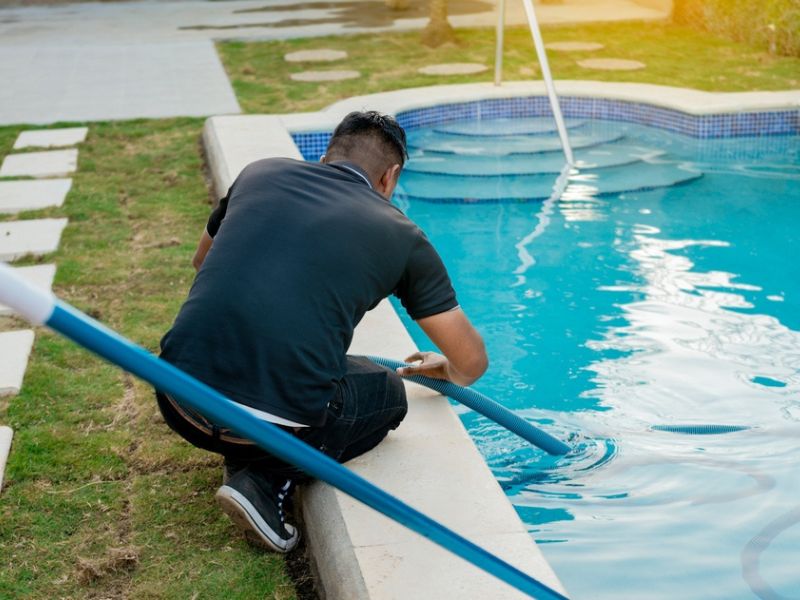Swimming pools are a popular source of recreation and relaxation during the hot summer months. However, while they offer a refreshing escape from the scorching heat, have you ever wondered if your pool could make you sick? The answer is, unfortunately, yes. Let’s delve deeper into the various factors that can contribute to pool-related illnesses.
Bacterial Breeding Ground
One of the primary culprits is bacteria. Harmful bacteria like E. coli and Legionella can thrive in poorly maintained pools, leading to gastrointestinal issues, respiratory infections, and even severe pneumonia. Insufficient disinfection, improper water balance, and lack of regular cleaning contribute to bacterial growth, putting swimmers at risk.

Image Credit: Pexels/Kammeran Gonzalez-Keola
The Viral Threat
Viruses pose another significant concern. Highly contagious viruses like norovirus and adenovirus can survive in pool water and cause gastrointestinal infections, respiratory problems, and conjunctivitis. Fecal matter or respiratory droplets from infected individuals can introduce these viruses into the pool. Inadequate sanitation and filtration systems increase the likelihood of viral contamination.
The Importance Of Maintenance
Inadequate disinfection of pool water is a significant contributing factor to the proliferation of these pathogens. Chlorine and other sanitizing agents kill bacteria and viruses in the water. Still, if the levels are not adequately regulated, they may be ineffective in destroying these harmful microorganisms. Insufficient circulation and filtration systems can also hinder the removal of contaminants, further exacerbating the risk of illness.

Image Credit: Shutterstock/Netpixi
Hygiene Matters
Poor personal hygiene practices of swimmers can play a role in spreading disease. Individuals who enter the pool without showering beforehand or those who swim while suffering from diarrhea or other contagious illnesses can introduce pathogens into the water, putting everyone else at risk. Promoting good hygiene practices among swimmers is essential to reduce the transmission of illnesses.
Prevention And Safety Measures
Taking specific precautions is crucial to reduce the risk of falling ill from a pool. Regular testing and balancing of water chemistry are crucial to ensure proper disinfection. Maintaining appropriate chlorine levels or alternative sanitizers can significantly reduce the risk of bacterial and viral infections. Adequate filtration and circulation systems and routine cleaning of pool surfaces can help eliminate contaminants and maintain water clarity.